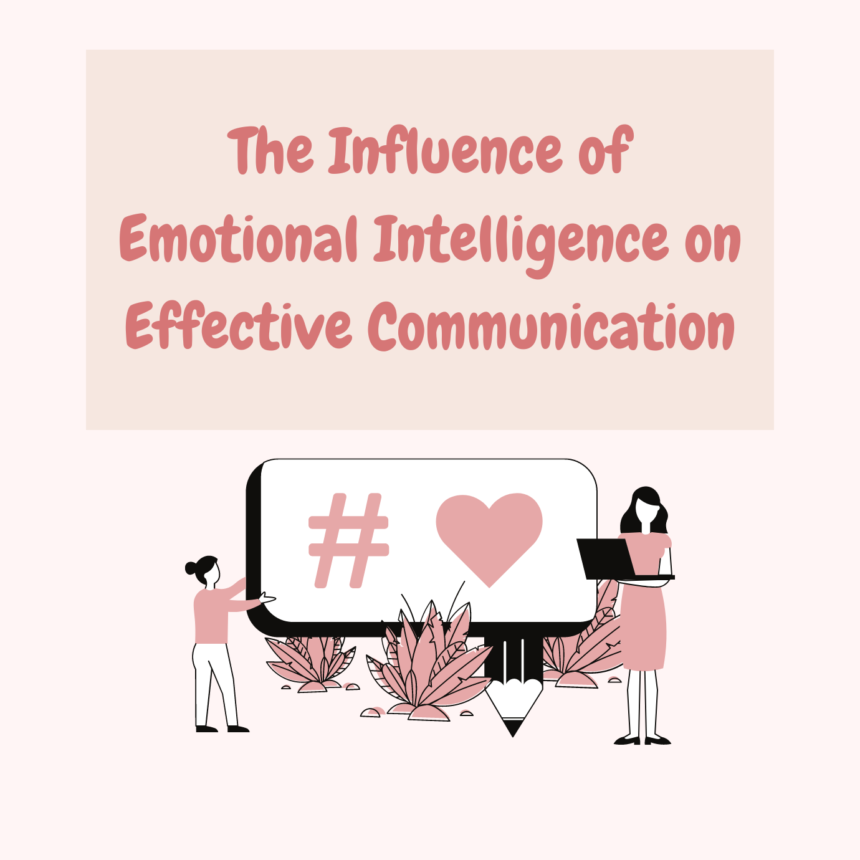Effective communication goes beyond the mere exchange of words. It involves understanding emotions, connecting with others, and conveying messages in a way that fosters understanding and harmony. In this article, we explore the influence of emotional intelligence on effective communication and provide insights on how developing emotional intelligence skills can improve your ability to connect and communicate effectively.
Emotional intelligence (EI) refers to the ability to recognize, understand, and manage emotions, both in oneself and in others. It plays a crucial role in communication because emotions greatly impact how we interpret and respond to messages. Here’s how emotional intelligence influences effective communication:
- Self-Awareness: Emotional intelligence begins with self-awareness. By understanding your own emotions, strengths, and triggers, you can communicate more authentically and manage your reactions effectively. Self-awareness allows you to express yourself in a way that aligns with your true intentions.
- Empathy: Empathy is the ability to understand and share the emotions of others. Emotional intelligence enables you to empathize with others by recognizing and validating their feelings. This skill helps you connect on a deeper level, fostering trust and open communication.
- Emotional Regulation: Effective communication requires managing and regulating your own emotions. Emotional intelligence helps you stay calm and composed during challenging conversations, preventing impulsive reactions. This allows for more thoughtful and constructive communication.
- Nonverbal Communication: Emotional intelligence helps you interpret nonverbal cues accurately. By recognizing facial expressions, body language, and tone of voice, you can understand the emotions underlying the words being spoken. This enhances your ability to respond appropriately and empathetically.
- Conflict Resolution: Emotional intelligence is vital in resolving conflicts. It allows you to understand the emotions and perspectives of all parties involved, facilitating empathetic and constructive communication. With emotional intelligence, you can find mutually beneficial solutions and build stronger relationships.
- Relationship Building: Emotional intelligence plays a key role in building meaningful relationships. By recognizing and responding to the emotions of others, you can create an environment of trust and rapport. This fosters open and honest communication, strengthening connections.
- Flexibility and Adaptability: Emotional intelligence helps you adapt your communication style to different situations and individuals. By recognizing the emotions and needs of others, you can adjust your approach to ensure clear and effective communication. This flexibility builds understanding and promotes positive interactions.
- Active Listening: Emotional intelligence enhances active listening skills. By being fully present and attentive, you can pick up on subtle emotional cues and respond accordingly. This promotes deeper understanding and effective communication.
Developing emotional intelligence skills is essential for enhancing effective communication. To improve your emotional intelligence:
- Practice self-reflection and become aware of your emotions and reactions.
- Cultivate empathy by actively listening and seeking to understand others’ perspectives.
- Learn techniques for managing and regulating your emotions, such as deep breathing or mindfulness exercises.
- Seek feedback from others to gain insight into how your emotions impact your communication.
By developing emotional intelligence, you can significantly enhance your ability to connect, empathize, and communicate effectively. Embrace the influence of emotional intelligence in your communication, and experience the positive impact it has on your relationships and interactions.
